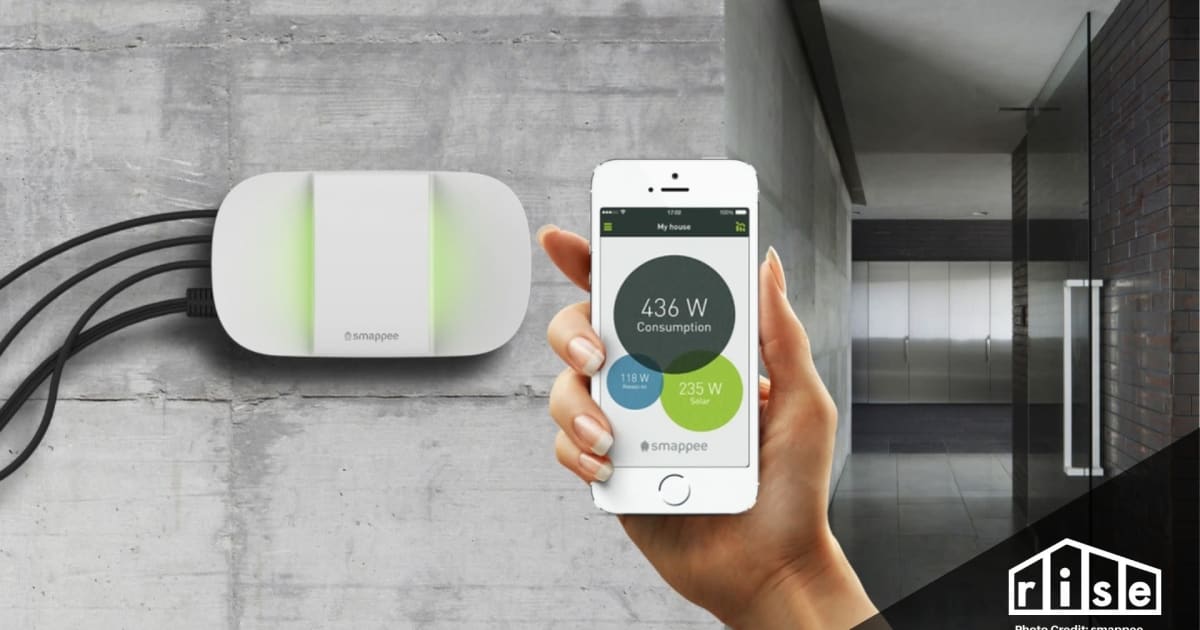
In today’s world, where sustainability and resource management are becoming increasingly important, many people are curious about whether they can monitor and track their energy usage with the help of smart meters and appliances. The answer is a resounding yes! With the latest technological advancements, smart meters and appliances are now equipped with features that allow you to keep a close eye on your energy consumption. By providing real-time data and detailed insights, these devices empower you to make more informed choices about your energy usage and ultimately contribute towards creating a greener and more efficient future. So, if you’ve ever wondered about the possibility of monitoring and tracking your energy usage, it’s time to explore the world of smart meters and appliances.
What are smart meters and appliances?
Definition of smart meters
Smart meters are advanced energy meters that provide detailed and real-time information about your energy consumption. Unlike traditional meters, which only measure the total energy usage on a monthly basis, smart meters provide granular data on a per-hour or per-minute basis. They are often equipped with wireless communication capabilities to transmit the data to utility companies for billing purposes and to consumers for monitoring their energy usage.
Definition of smart appliances
Smart appliances, on the other hand, are household devices that are designed to optimize energy consumption. These appliances are equipped with sensors, software, and connectivity features that allow them to communicate with smart meters and adapt their energy usage based on real-time data. Smart appliances can automatically adjust their settings, operate during off-peak hours, and provide usage feedback to consumers, helping them save energy and reduce their utility bills.
Benefits of smart meters and appliances
Smart meters and appliances offer numerous benefits for both consumers and utility companies. For consumers, these technologies enable them to have greater control and understanding of their energy usage. With real-time data and insights, they can make more informed decisions about their energy consumption and identify energy-saving opportunities. This can result in substantial cost savings and increased energy efficiency. For utility companies, smart meters and appliances help improve grid management, reduce peak demand, and enable more accurate billing. Additionally, these technologies support the integration of renewable energy sources and contribute to a more sustainable and resilient energy system.
How do smart meters and appliances track energy usage?
Real-time energy monitoring
Smart meters track energy usage in real-time by constantly recording and transmitting data on a frequent basis. They measure the flow of electricity through the meter and communicate this information over a wireless network. This allows consumers to see their energy consumption instantaneously and make adjustments to reduce waste or excessive usage.
Usage data collection
Smart meters collect usage data by monitoring the amount of electricity consumed by various appliances and systems in a home or building. These meters record the energy usage at regular intervals, typically every hour or every minute, depending on the capabilities of the meter. This data is then aggregated and presented in a user-friendly format, allowing consumers to track their energy usage patterns and identify areas for improvement.
Wireless communication
Smart meters use wireless communication technology, such as Wi-Fi or cellular networks, to transmit data to utility companies and sometimes directly to consumers. This enables remote monitoring and eliminates the need for manual meter readings. The data collected by smart meters can be accessed through online portals or mobile apps, providing consumers with easy and convenient access to their energy usage information.
Smart meters vs. smart appliances
While smart meters primarily focus on monitoring overall energy usage, smart appliances take tracking to a more granular level. Smart appliances have built-in sensors that can provide detailed information about their individual energy consumption. They can communicate with smart meters and other devices to optimize their energy usage based on real-time data. The combination of smart meters and smart appliances offers a comprehensive approach to energy tracking and management.
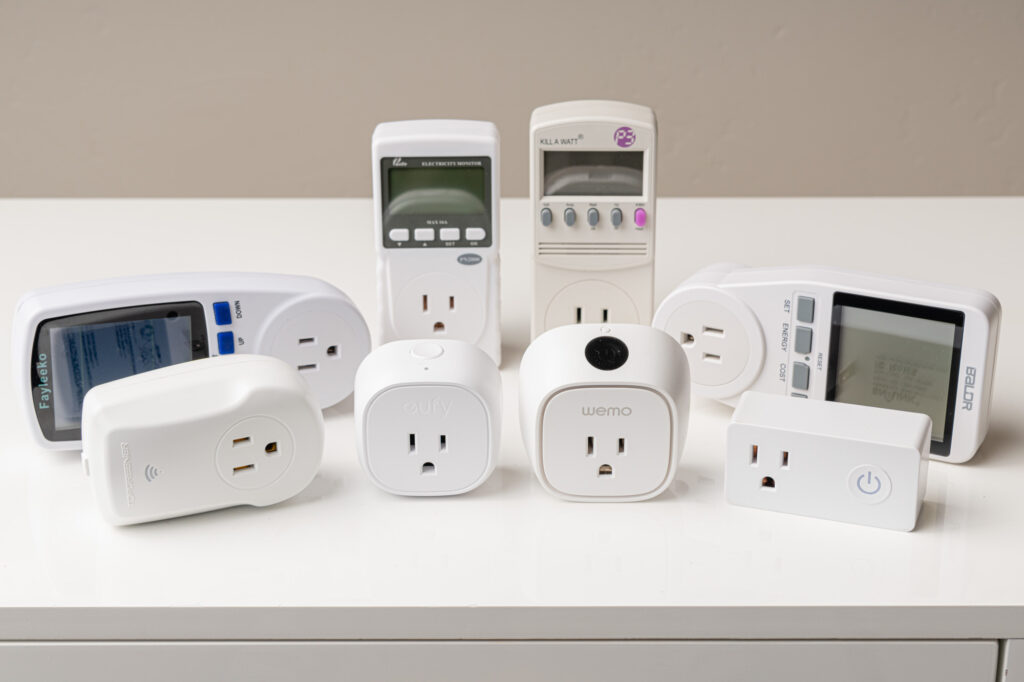
How can I monitor my energy usage with smart meters?
Accessing real-time usage information
With smart meters, you can access real-time information about your energy usage. Many utility companies provide online portals or mobile apps that allow you to monitor your energy consumption on a daily, hourly, or even minute-by-minute basis. These platforms present the data in graphs and charts, making it easy for you to understand your energy usage patterns and identify any abnormalities or excessive consumption.
Viewing historical usage data
In addition to real-time information, smart meters also store historical usage data. This allows you to compare your current energy consumption with previous days, weeks, or months. By reviewing this data, you can identify trends and seasonal variations in your energy usage and make adjustments accordingly. For example, you may discover that your energy usage increases during certain times of the day or year, prompting you to change your behavior or invest in energy-efficient appliances.
Setting energy usage alerts
Smart meters often provide the option to set energy usage alerts. These alerts can be customized to specific thresholds or time frames, allowing you to receive notifications when your energy consumption exceeds a certain limit or deviates from your usual patterns. This feature helps you stay aware of your energy usage and take proactive measures to reduce waste or adjust your energy habits.
Analyzing energy consumption patterns
Smart meters collect comprehensive data on your energy consumption, which enables you to analyze your energy usage patterns over an extended period. By examining this data, you can identify trends, peak usage periods, and areas of high energy consumption. This insight empowers you to make more informed decisions about your energy usage and implement strategies to optimize efficiency and reduce costs.
What tools are available for tracking energy usage?
In-home energy displays
In-home energy displays are physical devices that connect wirelessly to smart meters and provide real-time energy usage information. These displays can be placed in a prominent location in your home, such as the kitchen or living room, allowing you to easily monitor your energy consumption throughout the day. In addition to displaying current usage, some devices also offer historical data and energy usage tips, further enhancing your understanding of your energy consumption.
Mobile apps and online portals
Many utility companies provide mobile apps and online portals that allow you to access your energy usage data from anywhere with an internet connection. These platforms offer a user-friendly interface to view real-time and historical energy usage information. Some apps even provide personalized energy-saving tips and recommendations based on your usage patterns, helping you make more environmentally conscious choices.
Third-party energy management systems
There are also third-party energy management systems available that integrate with smart meters and appliances. These systems offer more advanced features, such as energy usage forecasting, detailed analytics, and integration with home automation devices. They provide a comprehensive energy management solution, allowing you to track and optimize your energy usage across multiple appliances and systems in your home.
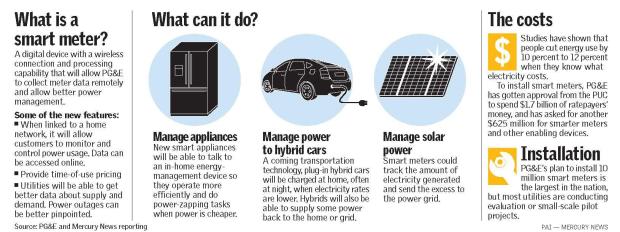
Can I track energy usage by individual appliances?
Smart plugs and outlets
Smart plugs and outlets are devices that can be inserted between an appliance and a wall socket. These devices have built-in energy monitoring capabilities, allowing you to track the energy usage of individual appliances. Some smart plugs can also be controlled remotely and programmed to turn off devices automatically when not in use, further reducing energy waste.
Energy monitoring apps
There are various smartphone apps available that can monitor the energy usage of individual appliances. These apps utilize the camera or microphone of your smartphone to detect changes in energy usage and provide real-time feedback. By placing your smartphone near the appliance, these apps can analyze the energy signature and display the energy consumption on your screen.
Appliance-specific monitoring devices
Certain appliances, such as refrigerators or washing machines, may come equipped with their own monitoring devices. These devices provide detailed information about the energy usage of the specific appliance they are installed in. They can be connected to smart meters or other tracking systems to integrate the data and provide a comprehensive overview of your energy consumption.
What are the potential savings with energy tracking?
Identifying energy-saving opportunities
One of the key benefits of energy tracking is the ability to identify energy-saving opportunities. By monitoring your energy usage, you can pinpoint devices or habits that consume excessive energy and make changes accordingly. For example, you may discover that leaving appliances on standby mode unnecessarily contributes to a significant portion of your energy bill. By turning off these devices completely or using smart plugs to automatically disconnect power, you can reduce energy waste and save money.
Optimizing energy usage for cost reduction
Energy tracking allows you to optimize your energy usage to reduce costs. By understanding when your energy consumption peaks and using appliances during off-peak hours, you can take advantage of lower electricity rates. Additionally, monitoring your usage patterns can help you identify the most energy-efficient appliances and prioritize their usage. Over time, these small changes can lead to substantial cost savings on your utility bills.
Evaluating the impact of energy-efficient upgrades
If you invest in energy-efficient upgrades, such as LED light bulbs or energy-efficient appliances, energy tracking can help you evaluate their impact. By comparing your energy usage before and after the upgrades, you can quantify the energy savings and assess the return on investment. This information can guide future upgrades and encourage participation in energy efficiency programs.
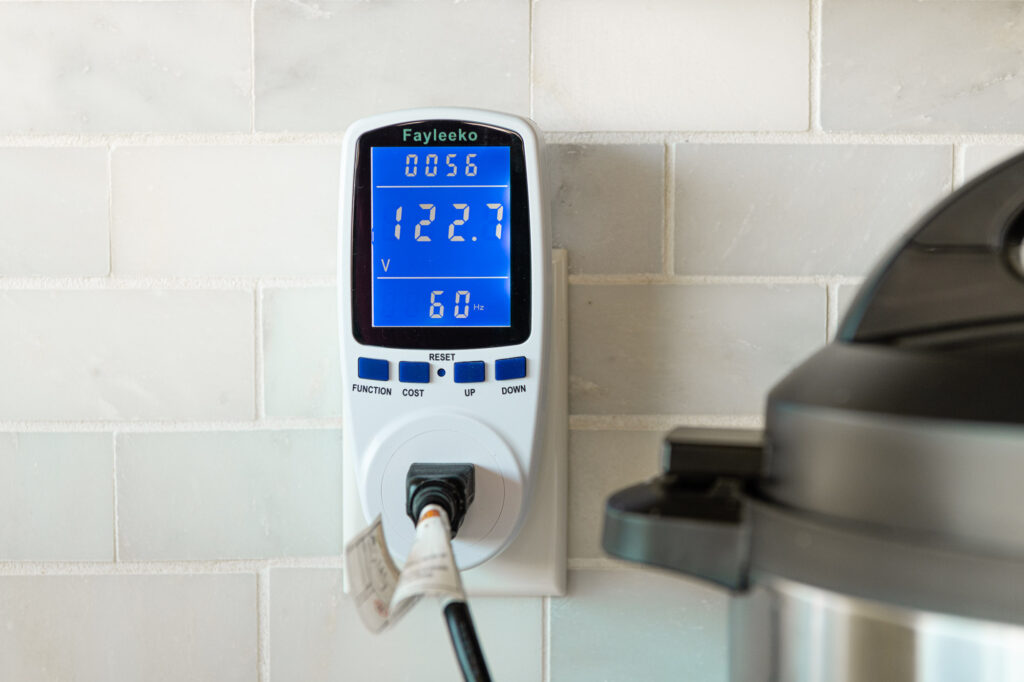
Are there any privacy concerns with energy tracking?
Collection and use of personal data
Energy tracking involves the collection and use of personal data related to your energy usage. This data can include information about when and how you use energy, which may reveal patterns of behavior and personal preferences. It is essential to ensure that the data collected is used solely for the purpose of energy management and that your privacy is protected.
Data security and privacy measures
Utility companies and service providers must implement robust data security and privacy measures to safeguard your information. Measures such as data encryption, secure transmission protocols, and stringent access controls should be in place to protect your data from unauthorized access or breaches. It is crucial to choose reputable service providers and review their privacy policies to ensure that your information is handled securely.
Role of data protection regulations
Data protection regulations and laws, such as the General Data Protection Regulation (GDPR) in Europe, play a significant role in safeguarding your privacy when it comes to energy tracking. These regulations impose specific requirements on how personal data is processed and stored, ensuring that your rights are respected and that your data is protected. As a consumer, it is important to be aware of your rights and the regulations that govern the use of your data.
What are the limitations of energy tracking?
Accuracy and reliability of data
While smart meters and tracking devices provide valuable insights into your energy consumption, there may be limitations in the accuracy and reliability of the data. Factors such as meter calibration, electromagnetic interference, or technical glitches can impact the accuracy of the readings. It is important to consider these limitations when making decisions based on the data and to consult with utility companies if you have any concerns about the accuracy of your readings.
Compatible appliances and systems
Energy tracking requires the integration of smart meters and compatible appliances and systems. While many appliances are now equipped with connectivity features, older appliances may not be compatible with energy tracking technology. It is important to ensure that your appliances and systems are compatible with your chosen energy tracking solution to fully benefit from the features and insights provided.
Integration with renewable energy sources
Energy tracking systems may not always fully integrate with renewable energy sources, such as solar panels or wind turbines. While smart meters can measure the overall energy generated or consumed by these sources, the ability to track individual devices or appliances connected to renewable energy systems may be limited. It is important to consider this limitation when evaluating the effectiveness of energy tracking for your specific energy setup.
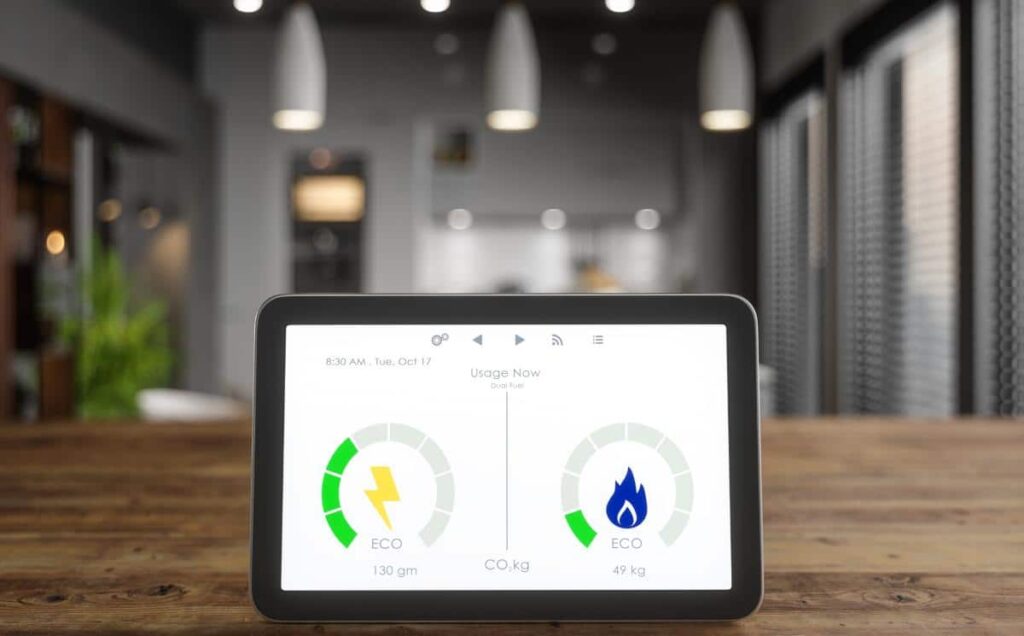
How can the data from energy tracking be utilized?
Energy management and conservation
The data from energy tracking can be utilized for effective energy management and conservation. By understanding your energy usage patterns and identifying areas of high consumption, you can make informed decisions to reduce waste and optimize your energy efficiency. For example, you may discover that adjusting the temperature settings on your thermostat can result in significant energy savings. By utilizing the data, you can proactively manage your energy usage and contribute to a more sustainable future.
Demand response programs
Energy tracking data can also be used in demand response programs. These programs incentivize consumers to reduce their energy usage during peak demand periods, helping to alleviate stress on the electricity grid. By participating in demand response programs, you can contribute to grid stability and potentially receive financial rewards or incentives for your energy-saving efforts. The data collected from smart meters and appliances plays a crucial role in facilitating these programs and ensuring their effectiveness.
Support for grid optimization and planning
The data collected from smart meters and appliances can provide valuable insights for grid optimization and planning. By analyzing the energy usage patterns of a large number of households or buildings, utility companies and grid operators can identify peak demand periods, forecast future energy needs, and optimize grid infrastructure accordingly. This data-driven approach helps ensure a stable and reliable electricity supply and supports the integration of renewable energy sources into the grid.
Conclusion
Monitoring and tracking your energy usage with smart meters and appliances can provide valuable insights to help you manage and reduce your energy consumption. These technologies offer real-time information, historical data, and various tools to analyze and optimize your energy usage. While there may be privacy concerns and limitations to consider, the benefits of energy tracking in terms of cost savings, energy efficiency, and environmental impact make it a worthwhile investment. By utilizing the data and taking proactive steps to reduce waste and optimize your energy usage, you can contribute to a more sustainable future while enjoying the benefits of lower utility bills.
